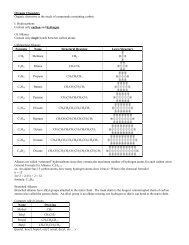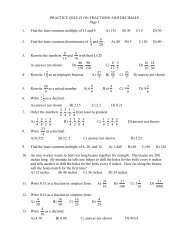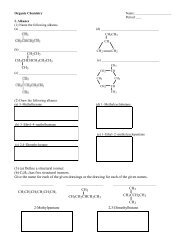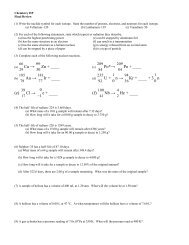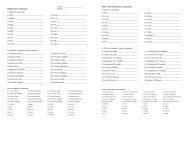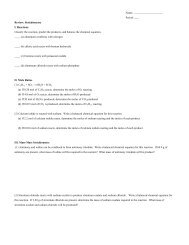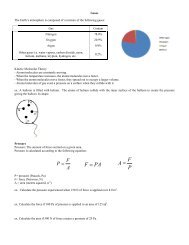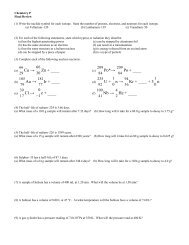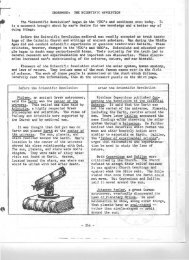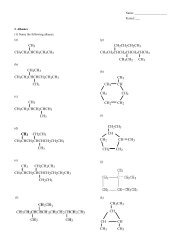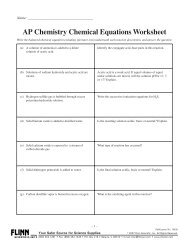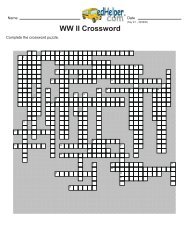Initially, only blacks were immediatists, but in the 1830s whites ex. William LloydGarrison [publisher of The Liberator beginning in 1831] joined the more radical side. Other immediatists, who shared Garrison’s moral intensity and firm belief in the evilinherent in slavery, rallied around the <strong>Am</strong>erican Anti-Slavery Society (1833). Bycontrast, gradualists felt that impulsive action would jeopardize peace and order. Opposition to abolition actually ended up helping immediatists – events such as the1837 murder of abolitionist editor Elijah Lovejoy and the South’s blocking of antislaverypamphlets in the mail gave the abolitionists opportunities to gather support. Abolitionists also gained following through their protest of the “Gag Rule” [1836 actthat automatically made abolitionist petitions off limits for debate, repealed in 1844]. Basically, the more opponents of abolition tried to contain dialogue on the topic, themore the movement gained resolve and became unified [initially split betweenGarrison’s “moral suasion” and James Birney, the Liberty Party candidate, whosupported pragmatic measures such as the election of abolitionists]. Women’s Rights – women were highly involved in the abolition movement [Female Anti-Slavery Society founded in 1833, disbanded 7 years later], but, as a result of some of theirproblems being accepted by male abolitionists and the general new idea of women havingactual roles in society, the women’s rights movement began to gain momentum. For instance,in the 1830s Angelina and Sarah Grimké wrote about women’s subordination to men, and byJuly 1848 the Woman’s Rights Convention met, where the Declaration of Sentiments waspromulgated to protest injustices against women. Nevertheless, the movement was stillfragmented [over issue of slavery] and it was hard to gather support.- So, throughout the nineteenth century, various reform movements arose in response to the religiousimpulse towards self-improvement and the changes in <strong>Am</strong>erican society.*Politics During the Era of Reform*- During the 1820s reform began to influence politics – and that, among other things – generated morewidespread participation in public life and a more open political system.- Other reasons for expanding participation in politics from 1824 – 1840 were… Many state constitutions began dropping the property rights qualifications to vote. Electors began to be chosen directly by the people in many states. The return of the party system in 1824 [DRs split into Democrats and Nat’l Republicans in1820s, NRs be<strong>com</strong>e Whigs in 1832 and Republicans in 1852] and the rise of third parties. The creation of more elected offices on the local level. An increase in popular campaigning processes. The end of the Caucus system [congressional caucus chooses party nominees] in 1824. Thatyear, the caucus chose William Crawford of Georgia as the DR candidate, but other DRs putthemselves forward in their regions as sectional candidates – thus boycotting the caucus asundemocratic and ending its role in nominating candidates. The nominating convention wasdeveloped in the 1830s.- The creation of the Second Party System in 1834 also helped greatly.*The Election of 1824 and J.Q. Adams’ Administration*- The Presidential Election of 1824 was a four way one: Andrew Jackson [West] vs. J.Q. Adams [NE] vs.Henry Clay [Old Northwest] vs. William Crawford [South]. The result was that, while Andrew Jackson led inboth electoral and popular votes, he was unable to obtain a majority.- The election was then thrown into the House of Representatives, where each state would cast one vote toselect the President. Clay was dropped, as he was in last place, Crawford had a stroke…so it was down toJackson and Adams. It was close, but all of a sudden, Clay [Speaker of the House] decided to back Adams.- Jackson supporters called Adams’ victory the “Corrupt Bargain” b/c soon after the election Clay waschosen Secretary of State in Adams’ administration and his <strong>Am</strong>erican System was supported.- So, with that slight issue, the DR party split into the… National Republicans [J.Q. supporters] – the NRs generally favored a more involved gov’tthat had an active role in numerous aspects of peoples’ lives. Democrats [Jackson supporters] – the Democrats had a wide range of views, but basicallythey stuck to the Jefferson concept of an agrarian society w/limited gov’t intervention andfeared the concentration of economic and political power. They stressed the importance ofindividual freedom and were against reform b/c it required a more activist gov’t.30
- Anyhow, during his administration J.Q. proposed a strong nat’list policy [Clay’s <strong>Am</strong>erican System] thatincluded protective tariffs, a nat’l bank, and internal improvements. J.Q. believed that the gov’t should playan active role in the economy, education, science, and the arts.- However, J.Q. stunk as a politician, and the Democrats made it all worse by sabotaging him at eachopportunity. So basically he got nothing done. And then came the…*The Election of 1828 and Andrew Jackson’s First Term*- In the Presidential Election of 1828, poor J.Q. was up against all the rabid Jackson supporters who hadbeen waiting for their revenge. Mudslinging was the order of the day [think modern campaign tactics], but e/tthe NRs were able to attack Rachel Jackson as a bigamist [don’t ask] Jackson creamed them.- As proved by Jackson’s mass-produced campaign stickers and stuff [a first] and his extensive, nat’l levelcampaign work, the sit-back-and-be-elected era had definitely ended and the time of popular movementshad begun. “Old Hickory” had to first well-organized nat’l party in US history.- So what did Jackson do when he became President? Well, like Jefferson, he managed the tricky task of strengthening the executive branch’s powereven while reducing federal power as a whole by: (1) relying on a “Kitchen Cabinet” of hispolitical friends instead of his official one, (2) rewarding his followers and confronting hisenemies, and (3) rotating officeholders [spoils system] to keep Democrats in office.On the limiting the gov’t side, Jackson vetoed nat’list programs, such as the Maysville RoadBill (1830), declaring them unconstitutional.- Jackson was very anti-elitist and all [reformer in sense that he returned gov’t to majority rule] but he wasalso very egotistical in his claims to represent the people – something that infuriated his opponents, whopointed out that he was corrupting the gov’t through the spoils system and called him “King Andrew.”- But the main issue during Jackson’s first term was…*The Nullification Crisis*- The whole nullification thing started in early 1828 before the election when an anti-Adams Congressdecided to propose this new ultra-high tariff thing. The point was to raise New Englander’s hopes and thennot have the ridiculous measure passed – thereby alienating Adams NE supporters and making him appearin<strong>com</strong>petent. But *surprise* it backfired and in 1828 the Tariff of Abominations [so said the South] passed.- South Carolina, basing itself on ideas expressed in the 1798 Kentucky and Virginia Resolutions, beganprotesting the tariff and declaring their right to nullify it. Calhoun, the VP, wrote and left unsigned the SouthCarolina Exposition and Protest [special state conventions can nullify nat’l laws].- But in the Senate it was Robert Hayne [SC] who argued in favor of states’ rights vs. Daniel Webster [MA]in the 1830 Webster-Hayne Debates [“Liberty and Union, now and forever, one and inseparable” – DW].- E/t Jackson was a states’ rights person, he believed the ultimate authority rested w/the people, not w/thestates. W/Calhoun obviously on the state sovereignty side, Jackson turned away from him and began to relymore on Secretary of State Martin Van Buren.- So in 1832 Congress tried to make the problem go away by reducing some of the duties but keeping themon iron, cottons and woolens. This was not good enough for South Carolina, who not only disliked the dutiesthemselves but also feared that they could set a precedent for legislation on slavery.- In November 1832, then, a South Carolina state convention nullified both tariffs and made it illegal tocollect them w/in state boundaries. In response, Jackson passed the Force Act, which gave the presidentauthority to call up troops and to collect duties before ships reached the state, while at the same timere<strong>com</strong>mending tariff reductions to give SC a chance to back down.- Calhoun, who had resigned as VP and be<strong>com</strong>e a South Carolina Senator, decided to work w/Henry Clayand eventually came up w/the <strong>com</strong>promise Tariff of 1833, which reduced duties over a 9 year period. SCwas satisfied and repealed its nullification law [but nullified the Force Act, which Jackson ignored].- Although the crisis was over, neither side really had won a decisive victory. It took another crisis, this timeover a nat’l bank, to make the thing clear…*The Presidential Election of 1832 and the National Bank Controversy*- First of all, in the Presidential Election of 1832, the main issue was the early removal of the Second Bankof the United States’ charter, which was due to expire in 1836. Jackson was all for the bank’s removal,attacking it as a center of special privilege and economic power; Clay wanted to recharter it.- In reality, the Second Bank of the US held federal funds and was an important source of credit forbusinesses. It also kept state banks honest by not accepting notes w/o gold to back them – so state banksweren’t exactly the nat’l banks biggest fans [saw it as private institution unresponsive to local needs].31
- Page 3 and 4: Congregationalists (Puritans) - The
- Page 5 and 6: - So the Restoration Colonies, form
- Page 7 and 8: - So in England, where they were lo
- Page 9 and 10: *Colonial Politics 1700-1750: Relat
- Page 11 and 12: - Another ideology that was beginni
- Page 13 and 14: - The Quebec Acts were passed aroun
- Page 15 and 16: - So, by 1782, what had seemed to b
- Page 17 and 18: on the economic side, since the gov
- Page 19 and 20: - Anyway, Congress had several ques
- Page 21 and 22: - Adams was still in the early Wash
- Page 23 and 24: *Political Factionalism and Jeffers
- Page 25 and 26: - Samuel Slater set up the first te
- Page 27 and 28: - Court rulings extended the powers
- Page 29: Revival, Reform and Politics during
- Page 33 and 34: TEXAS (Southerners) - Texas had bee
- Page 35 and 36: - Anyhow, Pierce’s total support
- Page 37 and 38: They had a smaller everything: smal
- Page 39 and 40: - The two Northern victories at the
- Page 41 and 42: - The result was the Fourteenth Ame
- Page 43 and 44: The Slaughter-House Cases (1873) -
- Page 45 and 46: in the arrest of 8 immigrant radica
- Page 47 and 48: case (1897 - ICC can’t set rates)
- Page 49 and 50: - The Populists prepared to run aga
- Page 51 and 52: - MOST IMPORTANTLY, though, was the
- Page 53 and 54: - So, what led the US to undertake
- Page 55 and 56: - The rebellion, led by Emilio Agui
- Page 57 and 58: - Still, Americans managed to turn
- Page 59 and 60: - So - the point of this episode? B
- Page 62 and 63: *Hoover’s Response*- Poor Herbert
- Page 64 and 65: - In FDR’s second term, however,
- Page 66 and 67: Dominican Republic - When we left i
- Page 68 and 69: World War II (1941 - 1945)*The Cour
- Page 70 and 71: - So Truman started off again all c
- Page 72 and 73: - First of all, the 1950s were (for
- Page 74 and 75: peace w/Japan that ended occupation
- Page 76: - France wanted out, so at the Gene



